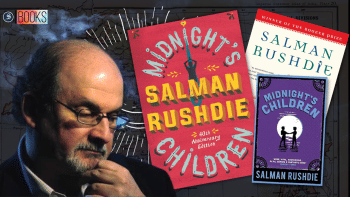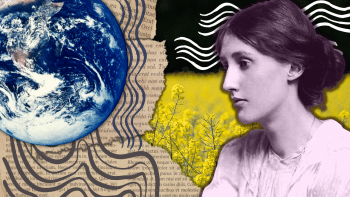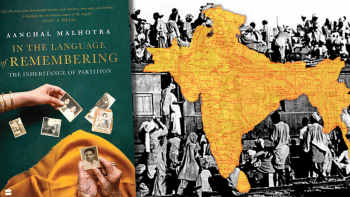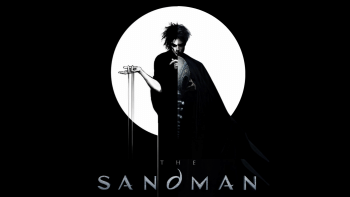Literature
BOOK REVIEW: POETRY / A deep dive into a poet’s mind
He had lost touch almost completely with his craft, so much so that he wondered if he even had it in him. But even so, for the sake of writing, he wrote. When the pandemic hit, Helal batted off the dust of his desk and sat down to write. Sitting from a foreign land, the ink flowed again.
BOOK REVIEW: FICTION / In the aftermath of the Palestinian catastrophe—'Minor Detail' by Adania Shibli (trans. Elisabeth Jaquette)
This book is an essential read to understand the extent of the erasure of Palestinian history after the Nakba and life under tyranny in its cities.
South Asia Speaks creative writing mentorship open for applications
The free, year-long fellowship for creative writers from South Asia, is accepting applications until September 30, 2022.
Commonwealth Short Story Prize 2023 open for submissions
Free to enter and open to any citizen, aged 18 and over, of a Commonwealth country, the prize accepts short story entries written in English and translated to English, as well as stories written in Bangla, Chinese, French, Greek, Kiswahili, Malay, Portuguese, Samoan, Tamil and Turkish languages.
‘I enjoy being alone’: Helal Hafiz
Helal Hafiz has been suffering from glaucoma for a long time, alongside complications with his kidney, diabetes and nerve complications.
FROM PAGES TO PIXELS / ‘The Lord of the Rings: The Rings of Power’—One series to fail them all?
What point is Lord of the Rings making in 2022? That people are racist and wage wars? The original trilogy, from two decades ago, was making that same point.
FROM PAGES TO PIXELS / Why ‘Hawa’ reminded me of Coleridge’s ‘The Rime of the Ancient Mariner’
The song “Shada Shada Kala Kala” seems almost like a visual rendition of “the merry minstrelsy” that breaks out in front of the bride as red as a rose.
REVIEW: SHORT STORY OF THE MONTH / No country for honest men in Shahidul Zahir’s “Woodcutter and Crows”
Zahir uses crows as a symbol of magic realism, as found in local folklore, where animals serve as omens of luck both good and bad. The crows seem to bring bad luck to the couple, and wherever they go, the birds follow.
How Salman Rushdie’s ‘Midnight’s Children’ changed my life
Metaphors have never made more sense to me than when these two swapped but intertwined lives personified India and Pakistan, the two newborn countries, whose births were marked by blood, pain and trauma.
How I feel about Virginia Woolf being part-Bengali
Maybe I loved her so because we were daughters of the same soil, to some extent, at least. It made me smile. But I also sneered at myself a little bit, because her soil had also ripped apart mine for over 200 years.
Shamsur Rahman, Al Mahmud, Shaheed Quaderi translated in new Bangla Academy book
The poems of Shamsur Rahman, Al Mahmud, and Shahid Qadri have been translated by Kaiser Haq, M Harunur Rashid, Kabir Chowdhury, Zillur Rahman Siddiqui and Rifat Munim for the edition.
International Youth Day: Why I enjoy reading YA books as an adult
We are drawn to stories about first experiences, and YA literature is rich with it. First experiences draw us in because they are the crucible for change.
Niaz Zaman's 'An Ekushey Anthology': Reminiscing Ekushey, 70 years on
Zaman has classified the pieces in two groups: "the early stories focus on the events that took place on 21 February—the processions, the police action and the deaths—while the later ones show how the attitude to Bangla has changed in these 70 years.
To trace back a tapestry of trauma: Partition inherited
Perhaps the book's best aspect is how it allows space for the stories of those who perpetrated violence during Partition.
Gaiman’s Paradox: When adaptations are overanalysed
The approach to critiquing any adaptation is to judge it as a separate piece of work, rather than as a companion piece for the book.
Netflix’s ‘The Sandman’ re-creates Neil Gaiman’s world in its own image
If you didn’t read The Sandman, watch The Sandman. If you read The Sandman, don’t expect the same magic as in the pages.
Shohorbanu
“Bhabi, do you remember Banu?” my paternal aunt Janu phupi asks Amma. We are in the middle of a grand celebration—I am getting married and today is my gaye-holud. My grandmother barks, “Don’t mention that ill-fated girl now. She tricked us all.”
Sara Ahmed’s “complaint biography” and Affective Reflections on Our Institutional Ethics
The world is encountering an unprecedented scale of injustices all over. Each of us is replete with a never-ending number of complaints.














